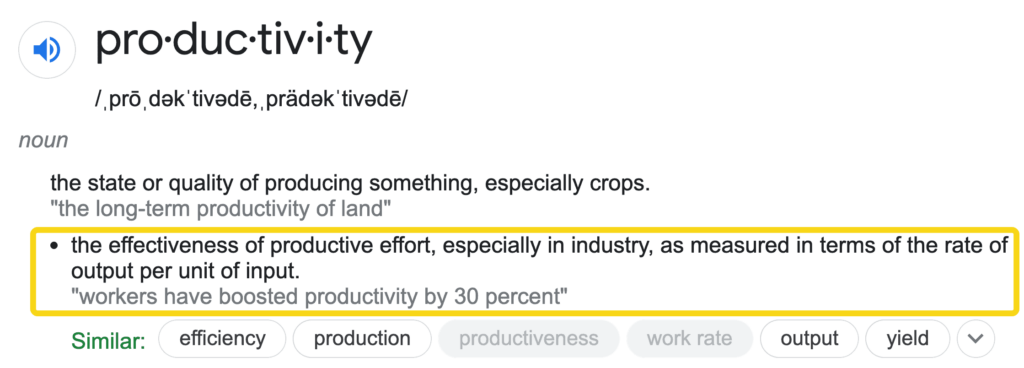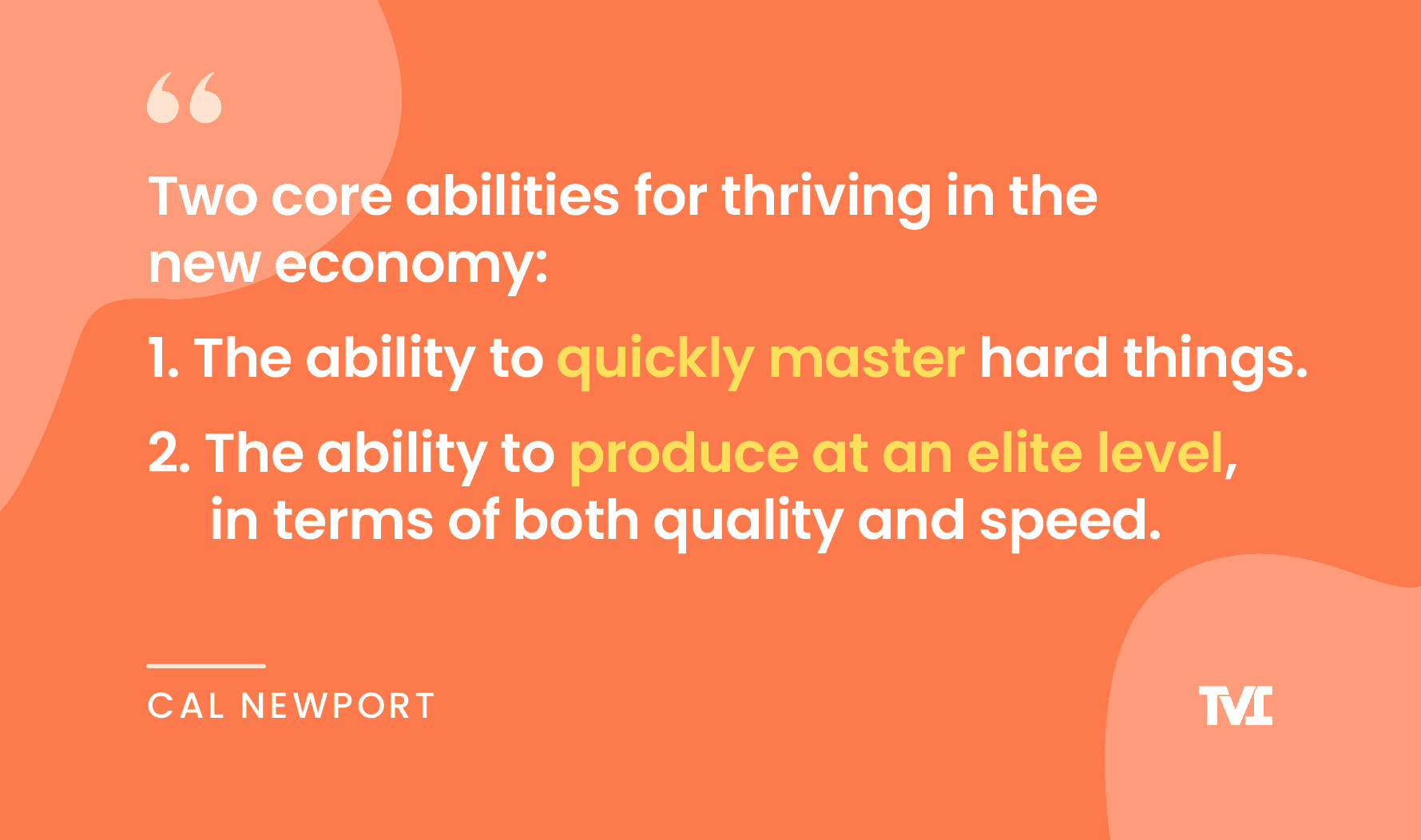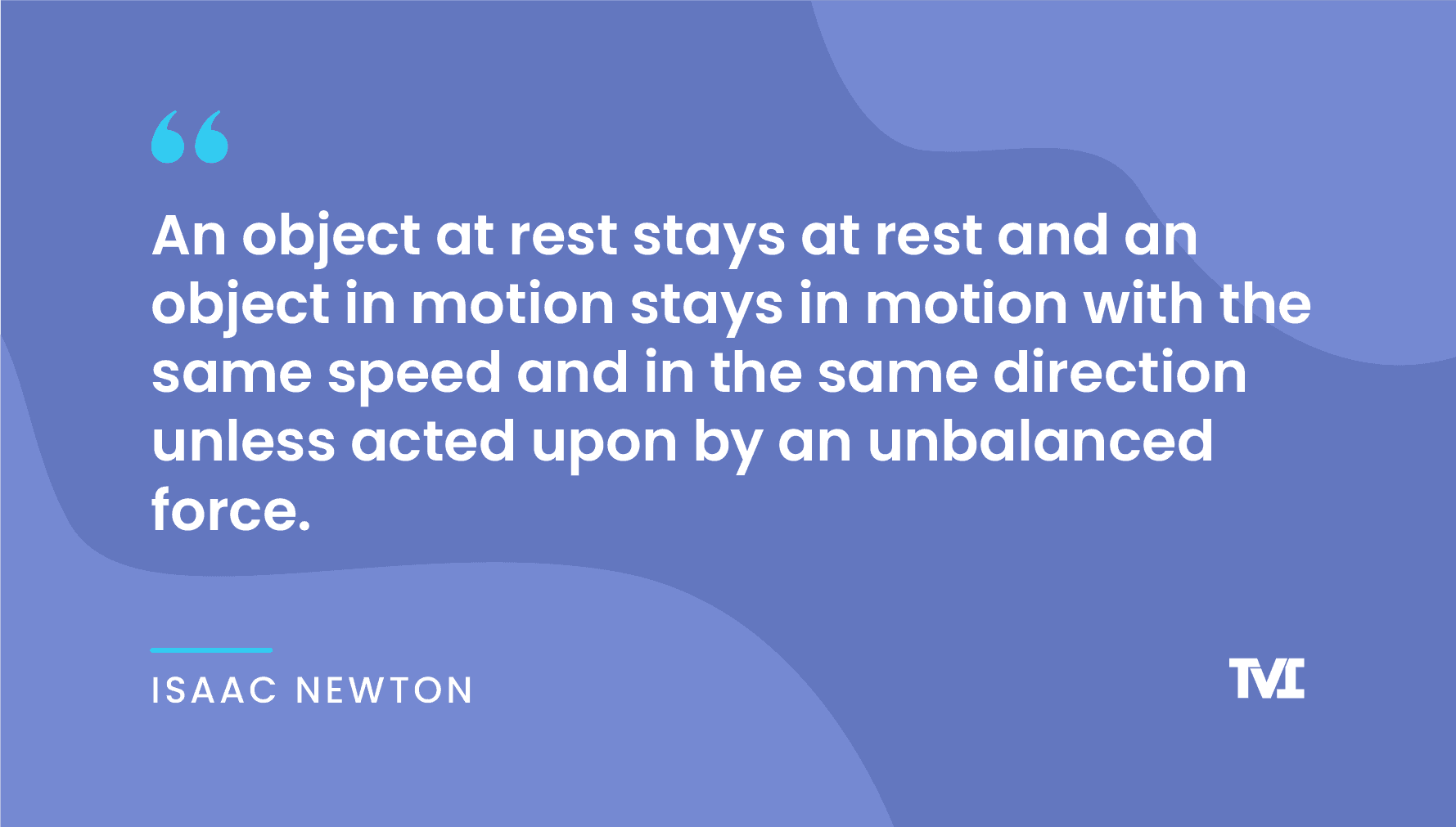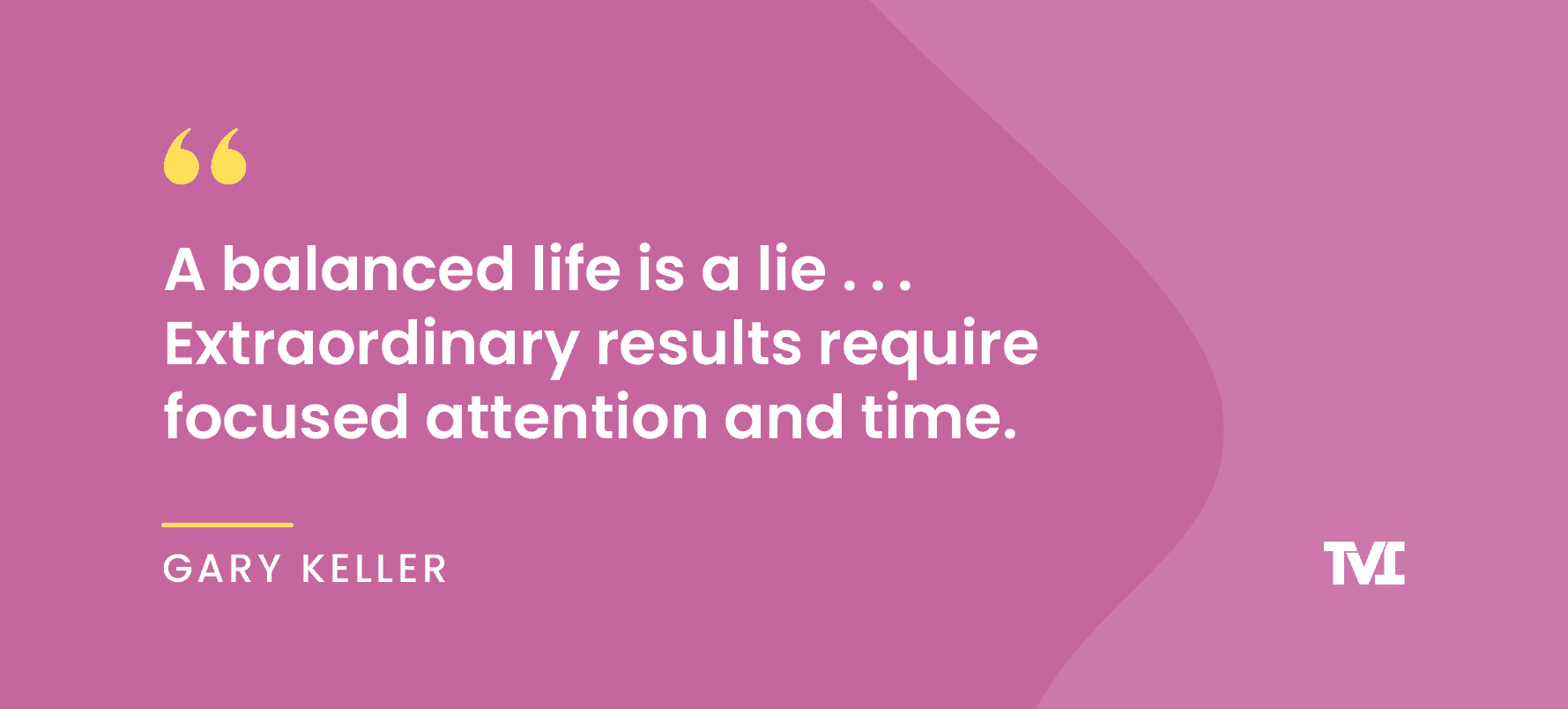Table of Contents
Hustle. Output. Results.
It all comes down to this:

Sure, we can all define what it means to be productive, but when it comes to practicing it regularly, many of us struggle. What productivity tips are actually worthwhile? How can you get more done?
I hate to burst your bubble, but you don’t need a 20-point checklist to be effective. Or a meticulously crafted rainbow-colored calendar. And you definitely don’t need to use any apps.
Self-improvement as a whole has created too much complexity and exaggeration when all the answers are simple.
If you want to improve your life, you just need to do all the things you already know you need to do deep-down.
That’s what’s so frustrating about productivity. It’s an open secret, yet you feel like it’s a mystery. You know what to do but get stuck on how to do it.
You can feel the future potential in your bones, but you hit this wall when it comes to performing the right actions. That gap between who you are and who you could be—it eats at you.
Let’s close the gap and revisit some useful ways to build momentum in your life—plus, the productivity tips you never knew you needed.
The only thing you need to do to be productive
To be productive, you must produce something. This is why so many activities actually fall into busy work and errands instead of real productive activity. Many people are active, but they’re not productive.
I produce something almost every day. I write a new blog post, a chapter of a book, and an email to send to my list. When you’re productive, you’re doing something that’s a means to an end. And not just a means to any end, a worthwhile end.
Here are some examples of things people think are productive that usually aren’t:
- Common errands – Sure, errands are a necessary evil, but some carry a badge of honor over doing them. Instead, batch all errands into a single day and spend the rest of your week focused.
- Production quality and aesthetics – I’ve noticed a trend. Aspiring creatives and entrepreneurs who have really good production quality or website design as beginners, almost always tend to fail. The quality of the skill, service, or product matters more and they’re harder to work on.
- Planning – While it’s true you need to plan to a degree before you start a new project or goal, most people spend their entire lives “getting their ducks in a row” and never, you know, do what they said they’d do.
I’d rather you jump in early and focus on what matters while making a few mistakes. Don’t fall into the trap of thinking you’re productive and then never produce anything of value for the world.
Much of the aimless energy around us stems from the fact that people do work hard—they really do—but they work on the wrong stuff. This causes frustration and anxiety. You’re active, but you’re living life like a hamster, running fast on a wheel that goes nowhere.
We’ve created a simultaneously hyperactive and useless culture. If you stopped doing so much misguided activity and started focusing on activities that made a difference in your life, you’d feel more motivated, wouldn’t burn out so easily, and the anxiety you have about living below your potential would go away.
Once you do THIS, you’ll have the mental clarity required
If you want to be truly productive, you need a clear purpose and mission for your life. A mission doesn’t need to involve a ton of money, status, or fame—it simply requires you to do something you care about and enjoy doing. Not love. Not magical-fairytale-unicorn-rainbow levels of passion.
Just enjoy and care.
Juxtapose a mission with a job. A mission is something you feel compelled to do. A job is something you feel you have to do. The best part about creating a mission while you have a job? The motivation spills over from one into the other.
Say you work on your side project in the morning, before work. You’ll have more energy when you’re done with your morning session and you’ll be better equipped to deal with your job. You won’t feel as burned out throughout the day because at least part of your day matters.
Feeling productive means you feel like you’re contributing something to the world. You can cultivate that feeling over time and it can grow exponentially as you become better at a new skill.
If you find a purpose in life, you’ll be productive in other areas—health, relationships, and general time-management (because you want to be able to do what you love more often). I keep myself healthy because I want to live longer and produce better work. I’m careful about who I choose to spend time with because I want to be around positive people only. As an absentminded person, having a writing career I care about has forced me to manage my time better.
Your life purpose is the stone that kills all birds.
Of course, this is no easy problem to solve, right? But it’s a worthwhile problem to solve. I don’t get why people throw up their hands at the task of finding their purpose. It’s supposed to be hard, genius. Like most good things, the effort put in directly impacts the reward.
The 5 productivity tips you need in your life
Let’s say you do have a mission in mind—a side business, a hobby, a fitness goal. Whatever. How do you become productive while on that mission? Let’s take a look at some productivity tips that will help you reach your goals.
1. Tap into the purest form of productivity

How many hours of focused work would you say the average office employee gets done per day? Two maybe three? Honestly, probably one.
How many hours of focused work do you get done per day?
If you can develop the ability to do these three things, you’ll become one of the most productive, valuable, and rare people in your field:
- Do deep work – Deep work involves doing something highly creative that requires focus to achieve. Writing is a form of deep work. Doing deep work sets you apart because most people don’t have the attention span to focus and solve problems. Practice deep work and you’ll experience the benefit of getting more output in the same amount of time as you would’ve with distracted and unfocused work.
- Enter a flow state – A flow state means you’re in the zone. All the noise fades to the background. Flow isn’t just a state of productivity, it’s a way to develop one of the purest forms of satisfaction there is. When I was building my writing career on top of my 9 to 5, those one to two hours of flow per day kept me sane.
- Repeat the process – If you can manage to do one hour of deep work per day, consistently, you’ll rise to the top of your field. Stretch that out to two hours, and the air gets rarer. Most people peak at four hours. Deep work helps you make a remarkable level of progress based on the literal amount of time you spend working.
Most people waste nearly all of their time during work. Instead, focus in for a little while, then treat the rest of your time as house money.
2. The unsexiest but most effective productivity tip of all time

If you can build momentum by practicing something on a daily or near-daily basis—i.e., you workout 3-5 times per week—you’ll have a level of consistency and momentum most people don’t have.
The bar is low.
I’d guess less than one percent of all bloggers, aspiring and active, write daily. The secret to my blogging success? I never stopped. That’s it. You get much better in the last 20 percent of your path. Your skills and outcomes jump dramatically. But you have to get there.
When you stop and start all the time, you move further away from your goal. Look at yo-yo dieters. They gain more weight each time. Inconsistent bloggers assure they’ll fail at making it a career because facing the page keeps getting tougher.
I don’t know many successful bloggers who didn’t get consistent pretty fast. If you started an online business and you worked at it one hour per day, for years, you’d get rich.
This all sounds simple and cliche, not exactly some magical superpower, but doing basic things cause success.
How do you reach the point where you just…go?
You need to have whatever conversation you need to have with yourself to cut the BS.
Realize you’re lying to yourself by looking for these magical pills.
Stop asking your in-shape friend how they got in shape. You know how they did it.
Stop picking my brain for writing advice. You know how I became a successful blogger.
You know the answer to any goal you have. Work on it on a routine basis and never stop.
3. Manage your most important asset

Time management is mostly BS—no need for all those fancy productivity routines.
Energy management, though, can help you maximize your productivity during the time you have available.
Do you consciously think about your energy levels? Do you focus on your most difficult tasks when you have the most energy? How about your diet? Do you consider how that affects your routines?
Start thinking in terms of when, how, and where you direct your energy throughout the day and build habits that match your goals:
- Do important work when you have the most energy – I worked on my writing career by waking up at 5 a.m. before my full-time job. Why? Because my day job zapped my energy.
- Focus on your diet and physical fitness – I practice intermittent fasting, not because I’m super into it, but because I tend to do creative work better on an empty stomach. When I do eat, I don’t eat hefty carb-heavy meals. I usually save my big meal for when I’m totally done working for the day.
- Manage your stress and mental clarity – I meditate and do Yoga because I know that having a bunch of cortisol running through my body won’t help me build a better business.
- Don’t fall for hustle porn culture – You don’t have to work 12 to 14 hour days. Once your energy levels are tapped, stop working.
- Sleep – 7 to 9 hours per day. The research is out. Just do it.
Your end goal? Move throughout your day as seamlessly as possible, utilizing different levels of energy at different times. By the end of the day, you should feel that healthy kind of tired, where falling asleep is easy because you’ve had a productive day—not burned-out-tired because you mismanaged your energy all day.
4. Understand what productivity means

I look at the root word of productivity, produce, and use it to guide my productivity philosophy.
You’re productive if you produce something tangible. If you’re a writer, that means publishing your work, not just writing it. If you have a business with a product, that means putting your product out for sale, not just developing it.
Activity and productivity are two totally different things. Many people are active, but they’re not productive. Mainly, people who plan too much will produce counterproductive outcomes.
For example, anytime I see a brand new creator with outstanding production quality but an inconsistent frequency of putting their content out, I know they’re done for. You do want to frontload the work, but the goal is to have a minimum viable solution or product you can put out consistently.
Planning stops at about the 20 to 30 percent mark. You should have a rough outline for what you want to accomplish and have systems in place, but you’ll have to refine your projects over time as new information comes in.
You can’t know everything in advance, so just go. Stop using your plans as a form of procrastination.
5. Understand that work-life balance won’t work

Having an integrated lifestyle, where you’re doing things you enjoy throughout most of your day, makes productivity a normal part of your life.
Most people need work-life balance because they don’t like the work they do. Most people burnout because they’re chasing the wrong goals, usually money and status, instead of chasing contentment with their work. I’ve never ‘burned out’ on writing. Why? Because, um, I like it.
Why all this gritting your teeth to get things done?
If you focused on aligning your natural talents and strengths to your lifestyle, you’d be more productive because you’re not forcing yourself to live a certain way. You’re compelled to live that way.
Then, once you knock over that major domino, everything else falls into place. I love writing and that became my keystone habit. A bunch of other habits spawned to support the main one—reading to feed my mind, exercise to keep my energy levels up for writing, meditation to stay clear-headed and lucid.
From the start of my day until the end of it, I’m either producing something, learning, or taking care of my body. I barely watch T.V., not because I’m forcing myself not to, but it just fell super low on my priority list because I enjoy the other things I do more.
The same will happen to you.
You’ll find a vague mission to focus on and as you move forward, your vision will become crystal clear. All the sudden noise will fade away from your life without you actively trying to reduce it.
The way you live your life—with just a few more hours of focused time than the average human being—will look wildly productive to everyone on the outside looking in.


